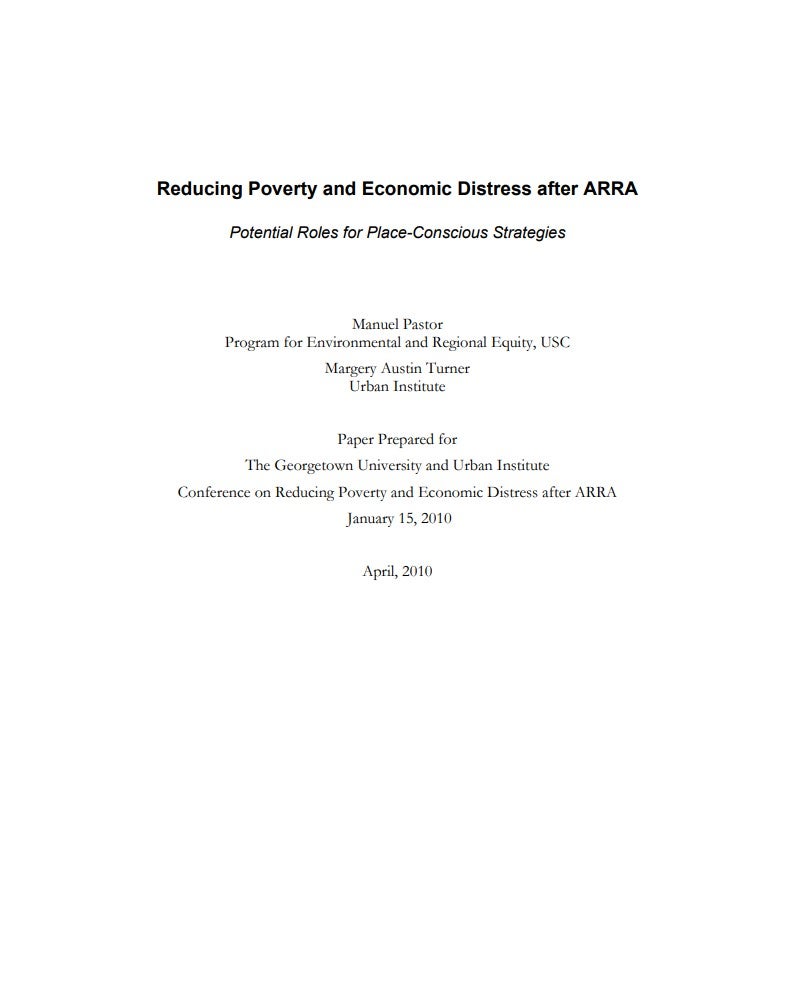
By Manuel Pastor and Margery Austin Turner
April 10, 2010
Urban Institute
Please note: reports dated earlier than June 2020 were published under our previous names: the USC Program for Environmental and Regional Equity (PERE) or the USC Center for the Study of Immigrant Integration (CSII).
Growing up poor is a challenge—and growing up in a poor neighborhood is even more challenging. Because community distress undermines individual outcomes and trajectories, place-based strategies have played a role in anti-poverty efforts. The notion that we need to think of distressed neighborhoods in a broader metropolitan context, is relatively new. We argue that this approach—considering place in metropolitan context, seeing neighborhoods as a platform for mobility, and understanding the critical role of organizing—could move the needle on poverty. The new administration understands this framework, but applying it across agencies and programs requires conscious effort and commitment.



